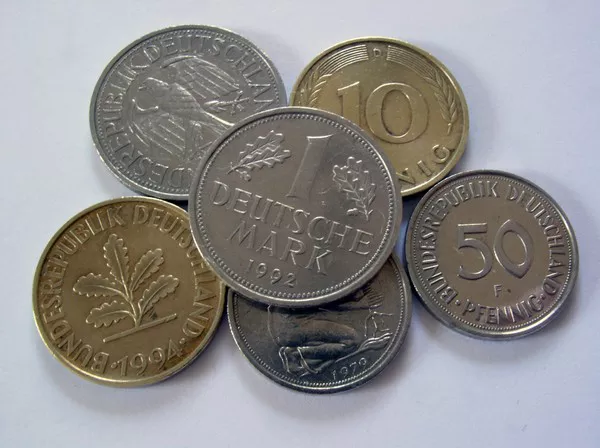The Euro, a symbol of European unity and one of the world’s most widely used currencies, has long been a cornerstone of the European Union (EU). However, the prospect of a Euro collapse has been a topic of discussion and concern for years, gaining particular attention during times of economic uncertainty. While the Euro’s collapse is by no means inevitable, understanding the potential consequences is essential for policymakers, economists, and citizens alike. In this article, we explore the hypothetical scenario of a Euro collapse and its far-reaching implications.
The Euro: A Brief Overview
Before delving into the possible repercussions of a Euro collapse, let’s take a moment to understand the currency itself. The Euro, introduced in 1999 as an electronic currency and later in physical form in 2002, is used by 19 of the 27 EU member states. It has brought benefits such as price stability, reduced exchange rate risk, and increased trade among member countries. The Eurozone’s combined GDP ranks among the largest globally, making the Euro a significant player in international financial markets.
Why the Euro Could Collapse
The Euro’s stability has been tested over the years by various economic crises. Factors contributing to the potential collapse of the Euro include:
Sovereign Debt Crisis: Several Eurozone members, most notably Greece, have faced severe debt crises, putting enormous strain on the common currency. A recurrence or a simultaneous crisis among multiple members could jeopardize the Euro’s stability.
Political Divisions: The EU has faced increasing political fragmentation, exemplified by the Brexit vote and disagreements over economic policies. A major political fracture within the EU could threaten the Euro’s existence.
Economic Imbalances: Economic disparities between Eurozone members persist, with some nations enjoying robust growth and others struggling with recession. These disparities could exacerbate tensions within the currency union.
The Implications of a Euro Collapse
A Euro collapse would undoubtedly have widespread repercussions. While it is crucial to remember that this scenario is speculative, understanding its potential consequences is critical.
1. Economic Turmoil
The most immediate impact of a Euro collapse would be economic turmoil. Financial markets would experience severe volatility, and the value of the Euro would plummet, causing panic among investors and consumers. Trade disruptions would be inevitable, as businesses and countries adapt to a new currency reality.
2. Currency Devaluations
In the aftermath of a Euro collapse, individual Eurozone countries would likely revert to their previous national currencies, leading to massive devaluations. This would increase the costs of imported goods, potentially causing hyperinflation and currency depreciation, which could further destabilize economies.
3. Banking and Financial System Instability
The Eurozone’s interconnected financial system would be severely affected by a currency breakdown. Banks holding Euro-denominated assets would experience significant losses, leading to bank runs and a potential liquidity crisis. The financial contagion could spread beyond Europe and threaten global financial stability.
4. Political Consequences
The political ramifications of a Euro collapse would be substantial. The European project, founded on the principles of unity and cooperation, would face a profound crisis. Nationalist and populist movements could gain traction, potentially leading to a resurgence of Euroscepticism and political divisions within the EU.
5. Trade Disruptions
The Euro’s role as a common currency within the Eurozone has facilitated trade and economic integration. A Euro collapse would disrupt these trade flows, making it more costly and complex for businesses to operate across borders. It could lead to a reduction in intra-European trade and negatively impact global supply chains.
6. Geopolitical Impact
The European Union, with its common currency, is a major player in global geopolitics. A Euro collapse could weaken the EU’s influence and disrupt its ability to act as a unified force in international relations. This could have far-reaching consequences for global stability and diplomacy.
Policy Responses to a Euro Collapse
Governments and international institutions would need to respond quickly and decisively to mitigate the effects of a Euro collapse. Potential policy responses could include:
Currency Stabilization Measures: National governments might need to intervene to stabilize their newly reintroduced national currencies and prevent hyperinflation.
International Financial Support: The International Monetary Fund (IMF) and other international organizations could provide financial assistance to stabilize Eurozone economies and their banking systems.
Trade Agreements: New trade agreements and arrangements would need to be negotiated to ensure the smooth flow of goods and services across borders.
EU Reformation: A Euro collapse could prompt a reevaluation of the EU’s structure and policies, with an emphasis on addressing economic disparities and political divisions.
Global Cooperation: In an interconnected world, cooperation between countries would be essential to manage the global fallout of a Euro collapse.
Conclusion
A Euro collapse remains a hypothetical scenario, and it is in the best interest of all parties to prevent such a crisis from occurring. Nevertheless, understanding the potential consequences of such an event is vital for policymakers, economists, and citizens. It underscores the importance of maintaining the Euro’s stability, resolving economic imbalances, and addressing political divisions within the European Union. Ultimately, a united Europe is not only in the interest of Europeans but also critical for global economic stability and peace.


